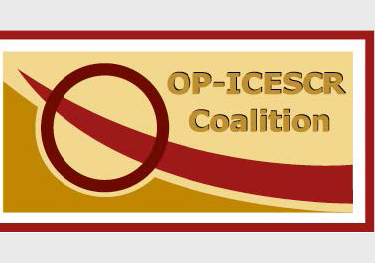The ICJ urges the Sub-Commission on the Promotion and Protection of Human Rights to dedicate efforts towards the realization of economic, social and cultural rights through an Optional Protocol the International Covenant on Economic, Social and Cultural Rights.
The transcript of this oral intervention follows:
Oral Intervention Submitted by the International Commission of Jurists
06 August 2002
The Realization of Economic, Social and Cultural Rights
Mr. Chairman,
The International Commission of Jurists welcomes efforts dedicated towards the realization of economic, social and cultural rights through the International Covenant on Economic, Social and Cultural Rights and the proposed draft Optional Protocol.
The 2002 Commission on Human Rights resolution to establish, at its fifty-ninth session, an open-ended working group to consider options with regard to the elaboration of an Optional Protocol to the ICESCR is an important step towards strengthening economic, social and cultural rights. The International Commission of Jurists considers the Optional Protocol an indispensable tool in further specifying the legal content and scope of Covenant enshrined rights to assist with their implementation.
To that end, on 30 November 2001, the International Commission of Jurists convened a roundtable conference on the ICESCR and the draft Optional Protocol. Deliberating on justiciability, progressive realisation of Covenant rights and the effect of an Optional Protocol on State prioritisations, the roundtable also examined international co-operation and assistance under the Covenant, the rights subject to a complaints’ procedure and possible remedies for Covenant violations. The International Commission of Jurists roundtable and the report detailing the proceedings served to move the process forward by providing a clearer understanding of the complex issues relevant to economic, social and cultural rights in general, and the draft Optional Protocol, in specific.
On 11 April 2002, the International Commission of Jurists, in co-operation with the Federal Republic of Germany and the Republic of Chile, convened a parallel meeting to the Commission on Human Rights. Positioned to further clarify obligations emanating from the ICESCR, the meeting utilised the right to health as an illustrative example to investigate the use of indicators, benchmarks and scoping in assisting States with the implementation of economic, social and cultural rights.
In September 2002, the International Commission of Jurists will convene a further experts’ meeting concerning the issue areas that the 58th session of the Commission on Human Rights mandated the Optional Protocol – ICESCR independent expert to study and report on at the 59th session. The independent expert was asked to report on the following areas:
- The nature and scope of States Parties’ ICESCR obligations;
- The justiciability of economic, social and cultural rights;
- The benefits and the practicability of an ICESCR complaints mechanism; and
- The complementarity between the proposed Optional Protocol and other complaints mechanisms.
The forthcoming International Commission of Jurists experts’ meeting will identify existing resources with regard to the above mentioned topic areas and will recommend areas, if any, that merit further study. The report detailing the proceedings is intended to further assist States Parties in clarifying the exact legal nature and scope of ICESCR enshrined economic, social and cultural rights.
Mr. Chairman,
The draft Optional Protocol, builds on the precedent of the first Optional Protocol to the International Covenant on Civil and Political Rights, the practice of the Committee on Economic, Social and Cultural Rights and other similar organs, both within and outside the United Nations system. It is central to underline that the main objective of an ICESCR Optional Protocol would be to increase the efficiency of the supervisory machinery which is currently based only on national reports.
A considerable number of States’ Parties have voiced support for proceeding to an open-ended intersessional working group that directly negotiates an ICESCR Optional Protocol without delay. Indeed, it is the position of the International Commission of Jurists that the drafting process itself will enable State and civil society representatives to discuss fundamental Optional Protocol and ICESCR issues more efficiently and concretely than through theoretical discussions.
In view of the growing support for the adoption of an ICESCR Optional Protocol, the International Commission of Jurists respectfully requests that the Sub-Commission send a message to the 59th session of the Commission on Human Rights to the effect that the working group should proceed with the actual drafting of the Optional Protocol. This would represent genuine progress towards the instrument’s adoption and to this end, the International Commission of Jurists emphasises its willingness to remain involved in the process.
Thank you, Mr. Chairman.

